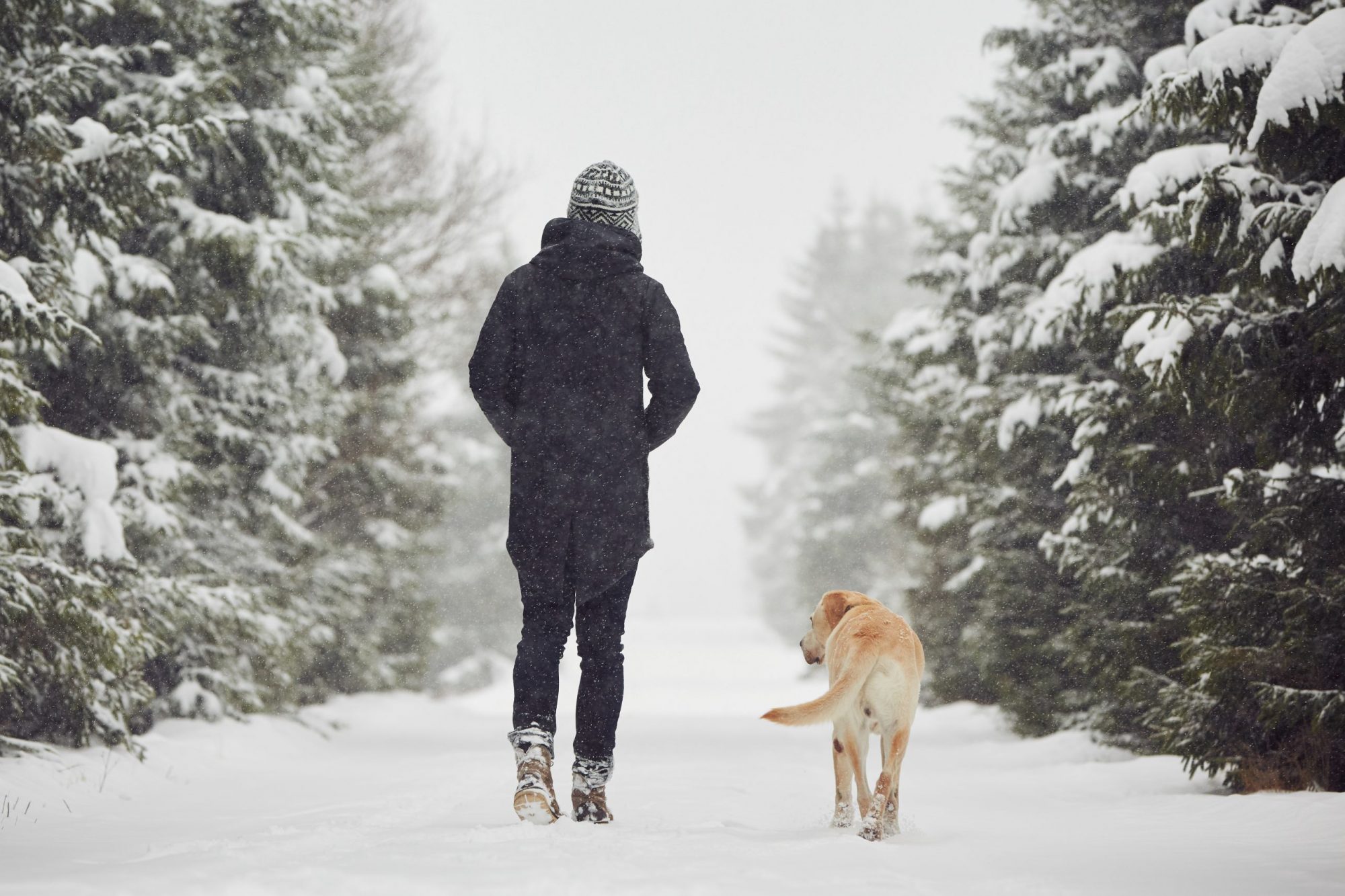Is Your Pet Cold Weather Ready?

Pennsylvania is still in the dead of winter, and the chilly temperatures can be a bit of a pet safety issue. Flowers Mills Veterinary Hospital knows that the cold weather isn’t quite over yet and wants to be sure our readers know everything they can about keeping their pets safe.
Cold Weather Pet Dangers
There are lots of things to think about when it comes to the cold weather and your pet’s safety. Potential pitfalls can include things like:
- Hypothermia
- Frostbite
- Toxicity from deicing products and antifreeze
- Warm, but dangerous places like engine blocks and space heaters
- Ice on paw pads
- Decreased sense of smell leading to getting lost
- Dehydration due to lack of a non-frozen water source
Colder temperatures don’t mean that your pet can’t go outside, but they do mean that you need to take some extra precautions to keep them safe!
Pet Safety for Chilly Temperatures
Do your part in cold weather pet safety by:
- Keeping your pet warm—Colder temperatures mean making a little more of an effort to keep your pet toasty. Never shave your pet’s insulating fur during the winter months. Most pets should not be kept solely outdoors. Pets who spend the majority of their time outside need a dry, safe place out of the wind with a source of water that is not frozen. Minimizing moisture is important. Pets who spend a significant amount of time in the cold will also need a higher calorie intake. Keep in mind very small, thin, geriatric, and young animals have a lower ability to regulate their body temperature.
- Taking good care of those paws—Ice, snow, and cold can be hard on paws! Rinse paws often and consider trimming long fur from between paw pads to prevent the accumulation of ice and snow. Products such as Mushers Secret can also help dry, chapped pads.
- Investing in clothes—Pets prone to getting chilly and those without a double coat might benefit from a well-fitted sweater or blanket. Booties can also help protect tender tootsies from the frozen ground.
- Keeping an eye on your pet—When there is snow on the ground, animals may be less able to recognize scents and get home. Always keep your pet within eyesight to prevent them from getting lost. Keeping an eye on them can also help you to recognize if they are getting too cold.
- Using pet-friendly products—Potentially toxic products like antifreeze and Ice Melt have animal-safe alternatives. Use these where possible.
Hopefully we will be hitting spring temperatures soon, but until then continue to be vigilant in the cold. As always, please contact us with any questions or concerns you might have about your pet’s care.

